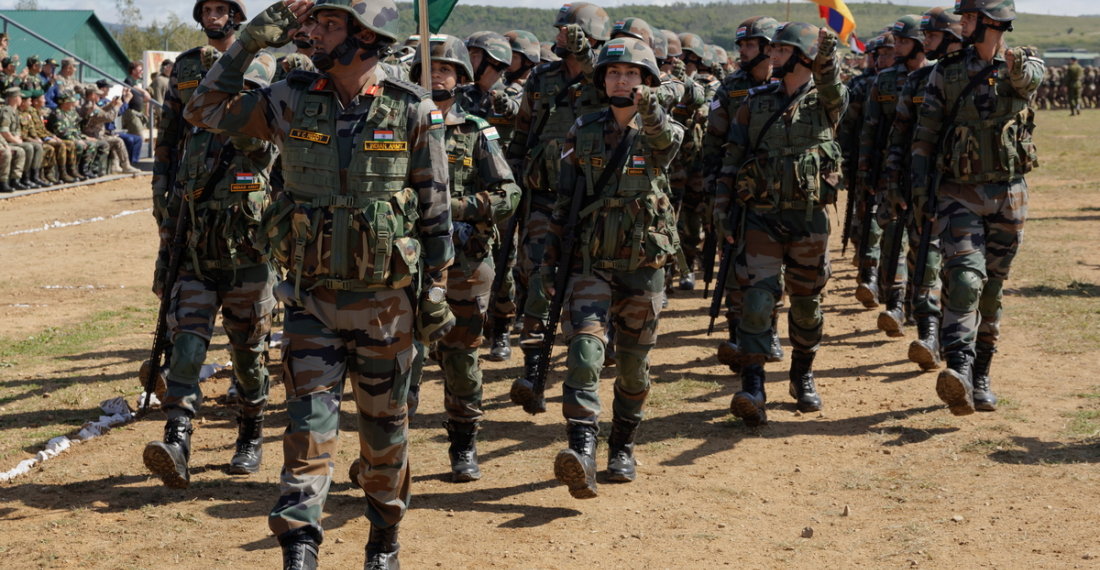For the last few days Russia has been conducting military exercises in the Far East, with the participation of tens of thousands of soldiers, and multiple military hardware. A total of more than 50,000 servicemen, more than 5,000 weapons and items of military equipment, including 140 aircraft, 60 warships, boats and support vessels, are involved in the Vostok 2022 strategic command post exercise.
But apart from the limited military value, Vostok-2022 are meant to show that Russia is far from being isolated in the international community, despite the sanctions and pressure of the west, following its invasion of Ukraine on 24 February.
The Russian government has stressed the importance of the participation of a number of foreign countries and organisations in the exercises. Participating contingents in the military drills include observers from the Collective Security Treaty Organisation, the Shanghai Cooperation Organisation (SCO) and other partner states including Algeria, Armenia, Azerbaijan, Belarus, India, Kazakhstan, Kyrgyzstan, China, Laos, Mongolia, Nicaragua, Syria and Tajikistan, Russian Deputy Defence Minister Colonel General Alexander, said in a briefing for foreign military attachés in Moscow last week.
It is true, that, except for China, which sent two thousand troops for the drills, all the other countries are present only symbolically, but in this instance symbolism counts. The presence of India in particular has irritated the United States.
India defended its participation in the exercises in response to U.S. criticism.
"India has been regularly participating in multilateral exercises in Russia, along with a number of other countries," said MEA spokesperson Arindam Bagchi, stressing that the Vostok exercises were routine, and added that they would only include Army contingents.
Mr. Bagchi was responding to comments by the U.S. White House Press Secretary who said that "the U.S. has concerns about any country exercising with Russia while Russia wages an unprovoked brutal war against Ukraine."
"Of course every participating country will make its own decisions,’’ said U.S. White House Press Secretary Katherine Jean Pierre.
Commonspace.eu political editor said in a comment that "it is to be noted that in recent military exercises, the Russian Ministry of Defence invited contingents from the unrecognised Russian protectorates of Abkhazia and South Ossetia. This allowed a number of countries to refuse to participate, citing the Abkhaz and South Ossetian presence as diplomatically problematic. This year the Russians decided to take no chances. Participation of countries such as India was of much more political importance than that of Moscow's South Caucasus proxies."
"Regardless however, Vostok-2022 has exposed once again a weakness in the diplomatic war that Ukraine is waging against Russia with the support of western countries. Whilst Europe has been unexpectedly united in its support for Ukraine, the response in the Middle East, Africa and Asia against the blatant aggressive invasion has been lukewarm, enabling Russian foreign minister, Sergei Lavrov, to claim, even if in fact wrongly, that most of the world supports Russia. This hides the fact that there is in many African, Asian and Middle Eastern countries genuine disquiet at the Russian invasion, but so far this has not manifested itself in diplomatic terms, a reflection of a weak Ukrainian and western strategy for dealing with the matter."
source: commonspace.eu
photo: The presence of a small Indian army contingent at the Vostok-2022 military drills has huge diplomatic significance (Picture courtesy of the Ministry of Defence of the Russian Federation
source: commonspace.eu






